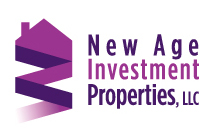Why Build vs. Buy?
/If you're a creative person who loves seeing your vision manifest into physical form then being a real estate developer may be a career for you. It's just one of those "sexy" professions that people admire and is rated up there with doctors, lawyers, and investment bankers.
However, as with most sexy professions, real estate development takes a lot of time, effort, preparation, and planning in order to bring a project to completion. From working with an architect to design the project, getting financing, to dealing with contractors, building departments, and inspectors, development can be very arduous yet extremely rewarding.
So what's the argument for building versus buying your investment properties?
Personally, I love the fact that I get to put my creative juices to work and design an attractive, high-quality, low maintenance property to add to my portfolio.
But more importantly, besides my love of structures, achieving higher leverage is usually easier when building than when purchasing an existing property. For example, for our buy and hold strategy we focus on acquiring properties built in the year 2000 or later. To do so requires a minimum of 25% down payment plus closing costs and money for minor renovations. And if we're lucky, there may be some equity in the deal.
In contrast to our buy and hold strategy, we purchase vacant lots and bring the cost of the land as equity to our lender when seeking a construction loan. The right lender will loan 70% on the After Repair Value (ARV) of the project and if structured the right way, the loan should cover most of the cost to build plus soft costs. This allows for the higher leverage previously mentioned which means bringing less of our own money to the table and utilizing more of other people's money.
Very low maintenance is another case for building versus buying investment properties. Although we purchase fairly new existing properties, there is nothing like having a brand new property where you can expect to have very minimal maintenance requests from tenants for up to 5 years! Expenses are low and cash flow is more stable and hopefully increasing. Also, not having to worry about maintenance and renovations gives us more time to focus on expanding and building more properties.
Another key advantage when building is the impact you can make. Being able to focus on 1 or 2 neighborhoods helps move the market in the direction you want. "Filling in the gaps" with urban infill development not only revitalizes communities but leaves us with a sense of satisfaction knowing that we've improved the esthetic of a community as well as people's lives.
What are other advantages that building your investment properties have over buying existing properties? Let me know in the comments below.

